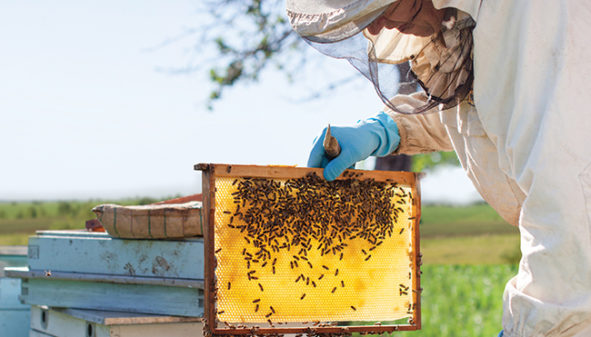Civil Society Environment Fund supports beekeepers in Zambia
Civil Society Environment Fund supports beekeepers in Zambia
Civil Society Environment Fund, Phase 2 (CSEF2) is a capacity building and environmental grant fund managed by PMTC Ltd and Ecorys on behalf of Ministry of Foreign Affairs of Finland. CSEF2 aims to ensure the economic and environmental sustainability of Zambia’s environmental and natural resource assets by improving the capacity of civil society organisations working in the environment sector.
Previously, CSEF2 supported a project focused on improved environment and natural resource management through the promotion of sustainable organic agriculture and other sustainable technologies and practices. This helped farmers in Zambia secure greater livelihoods while restoring soil fertility.
Now, CSEF2 has built on its expertise and support for Zambian agriculture with the Koloko Trust to deliver a project named “”Strengthening Community Response to Poverty Reduction and Environmental Conservation through Beekeeping in Luansobe Area”. The CSEF2 beekeeping project seeks to improve environmental sustainability and livelihoods for the rural farmers by creating alternative income generating options.
Enhancing Alternative Incomes
Joyce Zulu is a 58 year old mother of four children, who resides in Masaiti District of the Copperbelt Province, where one of the project’s main objectives was to train and equip 640 farmers in Masaiti, Mpongwe and Kapiri District with knowledge and skills in beekeeping.
This will enhance alternative income sources for participating communities and also provide an alternative to harmful and unsustainable charcoal production which is causing deforestation in the area. Beekeepers earn K10 per kilo of honey produced, therefore offering a reliable income generation opportunity whilst at the same time promoting environmental conservation.
Joyce Zulu and her son Laban are among the 640 selected farmers in Masaiti District who are benefiting from CSEF2 support. Before joining the beekeeping project, she and her family depended entirely on subsistence farming but did not manage to produce significant surplus for sale due to lack of farming inputs such as fertilizer and seed. Honey production however requires little inputs and the mud hives are specifically designed to be easily constructed by anybody without requiring specialised skills or materials. Joyce emphasizes that beekeeping is particularly helpful to elderly women like her, as she happily said “when I am in the hospital, the bees will still be working”.
Sustaining Environmental Conservation
Joyce had the highest yield of honey produced in last cropping season as she managed to capture bees in all her six mud hives and two wooden hives with a total of 270kg of comb honey which she sold to Kaloko Trust. Joyce is also a lead farmer for her community and provides support and market access to other beekeepers in her area. Joyce has used her honey earnings to pursue her passion for tailoring and buy herself a sewing machine which she will use to further increase her income. Joyce is optimistic for the future and plans to harvest over 500kg of honey in the next season.
Through this project and training, Joyce has been able to earn a sustainable income, and in turn, has given herself the opportunity to invest and create further income for her future tailoring plans. Alongside this, she is able to teach and support other community members to aid their own financial growth and provide knowledge on environmental conservation.
CSEF2 hopes that stories like that of Joyce, and the work of the beekeeping project continues to grow and raise awareness of the importance of environmental protection.



